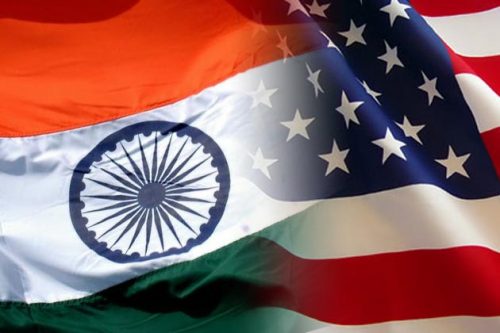
Both Republicans and Democrats have ‘warm’ feelings for Modi; Modi factor not a vote influencer.
US-India ties do not figure prominently among the issues that animate Indian Americans, who have emerged as a key factor in the 2020 presidential election even though they make up less than one percent of all registered voters.
Wooed by both Republicans and Democrats, the economy and healthcare, not India, are the two most important issues influencing their vote choice, according to a new survey.
While “Kitchen table” issues dominate over foreign policy concerns, the issue of US-India relations is among the least important influencers of Indian Americans’ vote choice, according to the 2020 Indian American Attitudes Survey (IAAS).
The survey was conducted by Carnegie Endowment for International Peace, Johns Hopkins University and Princeton in partnership with YouGov, a research and analysis firm, among 936 Indian American citizens between Sept. 1 and Sept. 20.
Just 3% named US-India relations as their number one issue (only sexism/gender discrimination was chosen less often).
Four percent named it as their second-most important issue, and 4% named it as their third-most important issue, ahead of sexism/gender discrimination and terrorism.
Again just 7% reported that a candidate’s position on India will be one of the most important issues shaping their vote choice.
As many as 51% of respondents reported it will either be very important or somewhat important, and 36% indicated it will be not at all important or not too important.
While India might be viewed as an important voting consideration in isolation, when considered in the context of competing priorities, it rarely floats to the top, the survey said.
Indian Americans’ view of incumbent Republican President Donald Trump’s handling of relations with India is also decidedly mixed, it says.
Only 22% of respondents strongly approve of Trump’s handling of bilateral relations and another 11 approve, or a combined approval of 33%.
On the other hand, 25% of respondents strongly disapprove, while 12% disapprove, a combined disapproval of 37%). A large percentage—29%—do not express an opinion either way.
Contrary to media reports that many Indian Americans are increasingly troubled with the Democratic Party’s foreign policy positions on India, the survey suggests Indian Americans favor the Democratic Party to the Republican Party by a greater than two-to-one margin.
As many as 39% of respondents reported that the Democratic Party does a better job on US-India relations while 18% believe the Republican Party is better.
The survey acknowledged this may well reflect their underlying preferences for the Democratic Party. For 26% it makes no difference, while another 16% reported they didn’t know.
The disquiet with the Democratic lawmakers, the survey noted was linked to opposition voiced by key Democratic lawmakers including Harris, with regards to changes in India’s polity under Indian Prime Minister Narendra Modi.
Looking at to what extent the Modi factor is an election issue because the Trump campaign has advanced the idea that Modi has endorsed his reelection, the survey shows a modest amount of polarization centered on his identity.
Asked to place Modi on a feeling thermometer scale of 0–100, Indian Americans placed the Indian leader at 55, somewhere between their ratings of Biden and Trump.
However, the ratings do differ somewhat by partisan preference. Trump voters give Modi the highest rating (76), followed by Republicans (70).
Democrats, on the other hand, give Modi a rating of 55, while Biden voters give Modi the lowest rating (52). Independents find themselves in the middle of the pack, granting Modi a rating of 58.
Yet overall, even for the more skeptical Biden voters and Democrats, Modi’s rating still falls on the “warm” end of the thermometer scale (since it is greater than 50).
On whether they approve of the job that Modi is doing as prime minister, 48% of Indian Americans approve of Modi’s performance, and 32% disapprove (20% express no opinion).
However, Indian Americans who approve of Trump’s performance are also more likely to approve of Modi’s performance: 66% of those who approve of Trump also approve of Modi.
Very few Indian Americans (18%) who approve of Trump disapprove of Modi.
However, those who disapprove of Trump are roughly equally split on Modi: 41% of those who disapprove of Trump approve of Modi, while 38% disapprove of him.
This result, according to the survey, suggests is that there may be a floor to Modi’s favorability.
While Trump supporters have a higher opinion of Modi, Trump’s detractors are divided on their views on the Indian prime minister, it said.
READ MORE:
Future of US-India relations: Role of diaspora and 2020 elections (September 25, 2020)
Vice President Mike Pence: US-India relationship has never been stronger, the best is yet to come (September 1, 2020)
No thaw in US-India tariff war (June 19, 2020)



